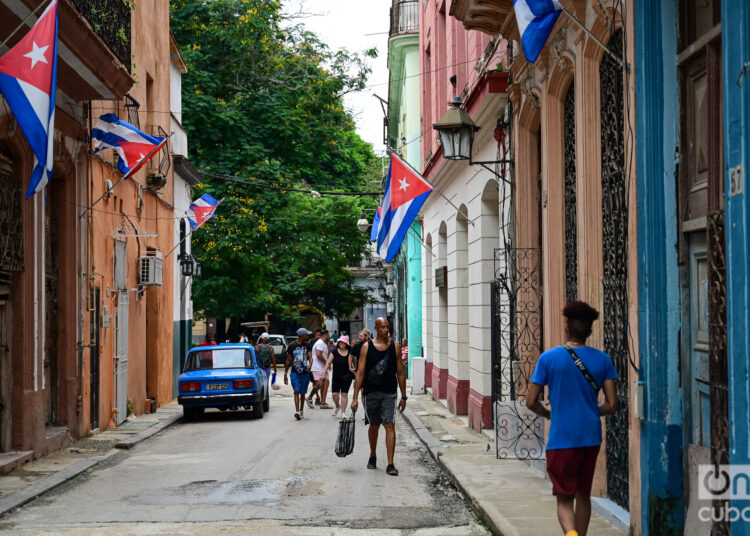The question from my friend and colleague left me speechless. It was very simple, perhaps too simple, but it froze my plan to begin writing the article for this column on November 26, the Day of Economists and Accountants of Cuba.
For those who do not know it, on that day in 1959, Che Guevara was named president of the National Bank of Cuba. A difficult task in an underdeveloped country, fresh from a war and immersed in two others, certainly more complex. The first, to face the growing siege of the Eisenhower administration, determined to overthrow Castro in sixteen weeks; and the other, that of trying to steer the path of development and eliminate structural flaws ― several of which still exist ― that hampered and still hamper those aspirations.
The economists and accountants who are in Cuba today and many others who are not among us, in their vast majority, are the product of the teaching of economics from the last years of the decade of the 1960s and all the decades that followed.
Some of them were trained in study programs that tried to prepare us to work in a centrally planned socialist economy, with a solid preparation in Marxist political economy. I must say, however, that we also had in our library at the Faculty of Economics some of the best books on universal economic thought, from the Complete Works of Adam Smith to relatively modern texts for those years, such as The New Industrial State (1967) by John Kenneth Galbraith, as well as several books on macroeconomics ― which was not a subject in the course at that time ―, those by neoclassical authors, and by Keynes, Robinson, Samuelson, Hicks, Rostow, Prebisch, among many others. All of them were freely accessible to teachers and students, without having to ask permission to consult them, as was necessary in other countries in the socialist camp.
Then, with the change in circumstances that occurred in the 1990s and with the need to join the global economy, mainly capitalist, the programs varied and, without renouncing the teaching of economics based on Marxist theory, new subjects were introduced in order to provide our students with the necessary tools to lead an economy that aspires to be socialist in a world that operates under the laws of capitalism.
Many of the economists and accountants who have been trained over the years have been successful professionals, in Cuba and outside the island. And those who have had to work in our country have done so despite the undervaluation that has often existed regarding the activity they carry out.
But it is also true that there is no high and positive correlation between the number of economics and accounting professionals, and the results of our state-owned enterprises, which are the ones that decide the game.
The reasons are multiple, but they have very little to do with the recently published fallacy that the academy owes a book to the Cuban socialist state-owned enterprise. Whoever wrote it displays a great lack of knowledge about everything researched and written on this subject —master’s theses, doctorates, books, etc. And whoever published it, had little responsibility and lack of knowledge about the work of universities and the Ministry of Higher Education.
Because it is not for lack of books and research that the people’s enterprises do not achieve what they should be and fail to start the big engine that pulls the rest of the Cuban business system. Nor is it for lack of capable businesspeople — whether they are economists or not — or of training and schooling. These same businesspeople, in other contexts, have demonstrated their worth.
I continue to believe that Cuba is one of the countries that invests the most in these aspects and probably the one that manages to obtain the least results, in terms of improving the efficiency and productivity of the people’s enterprises.
There are definitely other reasons; some of a material nature; others external — including the blockade — and others, perhaps those that have been hitting these enterprises for the longest time, caused by bad policies, by inadequate rules of the game, by restrictions on that necessary autonomy, which by the way was one of the points of discussion in that polemic of the 1960s between the Budgetary Financing System and the Financial Self-Management System.
Perhaps the best example of what autonomy can produce is found in the non-state sector, and especially in the MSMEs, which in just three years have managed, without a cent of State investment, to employ hundreds of thousands of Cubans, compete with the branches of foreign companies, rescue and start up factories that were stopped and warehouses that were almost in ruins, partially break the blockade and supply a part of the population that the State, for well-known reasons, has not been able to supply.
If we are still Marxists, if practice continues to be the criterion of truth, if we still defend the vision that we once approved, then what should happen is that the regulatory system that should be approved for the State enterprise should hardly differ from the one that the MSMEs once had; the same one that has been cut again and again, to do exactly the opposite and not only lock the MSMEs in the regulatory cage of the State enterprise, but to make that cage ever tighter.
My colleague’s question two days ago was what caused me to change the subject of the article I was writing for this week for OnCuba: “So, tell me, brother, what do we economists have to celebrate today?”
There is a lot to build the answer to a question like that. I did celebrate the Day of Cuban Economists and Accountants, and from here I wish you all a very happy day.










